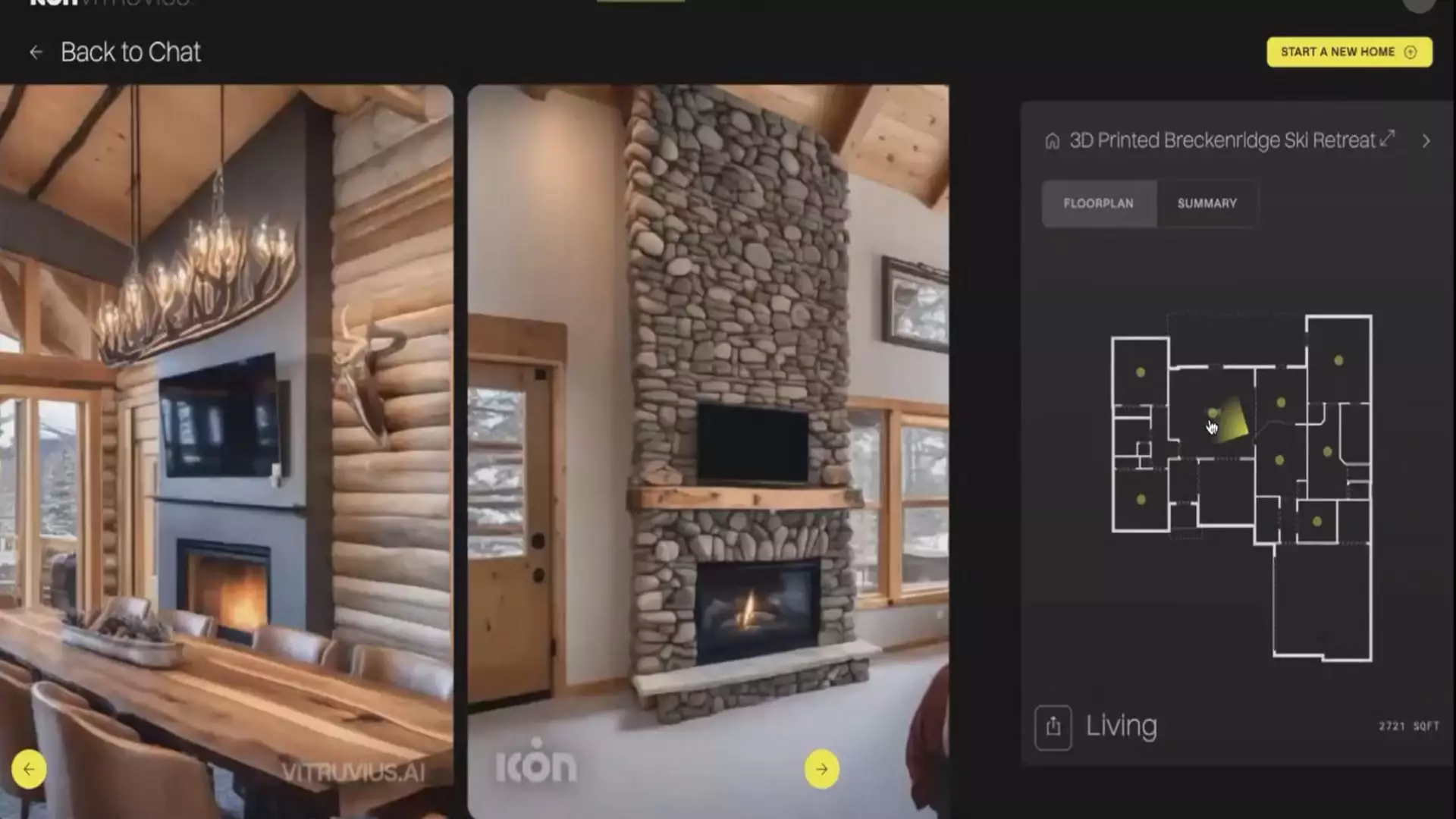In a groundbreaking move, the architecture industry is being transformed by the integration of artificial intelligence. Leading the charge is ICON, the developer behind the first fully 3D-printed housing developments in the United States. The company recently introduced Vitruvius, an AI program designed to streamline the process of designing custom homes online, making it more cost-effective and efficient.
According to Jason Ballard, CEO of ICON, Vitruvius is not just your run-of-the-mill design tool. It has the capacity to encompass the entire spectrum of the construction process, from conceptualization to delivery. The program can draw from a vast database of designs and possibilities, utilizing its training on building codes, methods, and structural engineering to offer personalized design options to users. By allowing users to input their preferences and requirements, Vitruvius can generate designs for three potential homes, as well as showcase what the homes would look like if they were 3D printed or inspired by renowned architects.
While some AI models have come under fire for potential copyright infringement, Ballard reassures that Vitruvius is different. He emphasizes that the program is not plagiarizing existing work but rather drawing inspiration from it, much like human artists do. The aim of Vitruvius is to revolutionize the architectural design process and open up new possibilities for both professionals and consumers.
Debuting at the South by Southwest festival in Austin, Texas, Vitruvius has garnered attention from architects and real estate agents alike. Professionals in the field acknowledge the transformative potential of AI in architecture, recognizing that it will change the way projects are approached and executed. While some, like architect Leonardo Guzman, view AI as a valuable tool that will enhance their work, others, such as real estate agent Gina McAndrews, see it as a means to collaborate with architects rather than replace them.
Ballard believes that the influence of AI in architecture extends far beyond individual consumers seeking to save on design fees. He argues that the integration of AI tools like Vitruvius could revolutionize the affordable housing sector, which often prioritizes cost-cutting over design quality. By making advanced design capabilities more accessible and cost-effective, Ballard envisions a future where affordable housing projects can incorporate beauty and dignity into their designs, without compromising on affordability.
The integration of artificial intelligence in the architecture industry, as exemplified by Vitruvius, represents a significant step towards innovation and efficiency. By harnessing the power of AI to enhance the design process, professionals and consumers alike stand to benefit from a more streamlined and cost-effective approach to architecture. As the industry continues to evolve, the possibilities offered by AI are set to revolutionize the way we conceptualize and construct buildings, paving the way for a more creative and sustainable future.

Leave a Reply